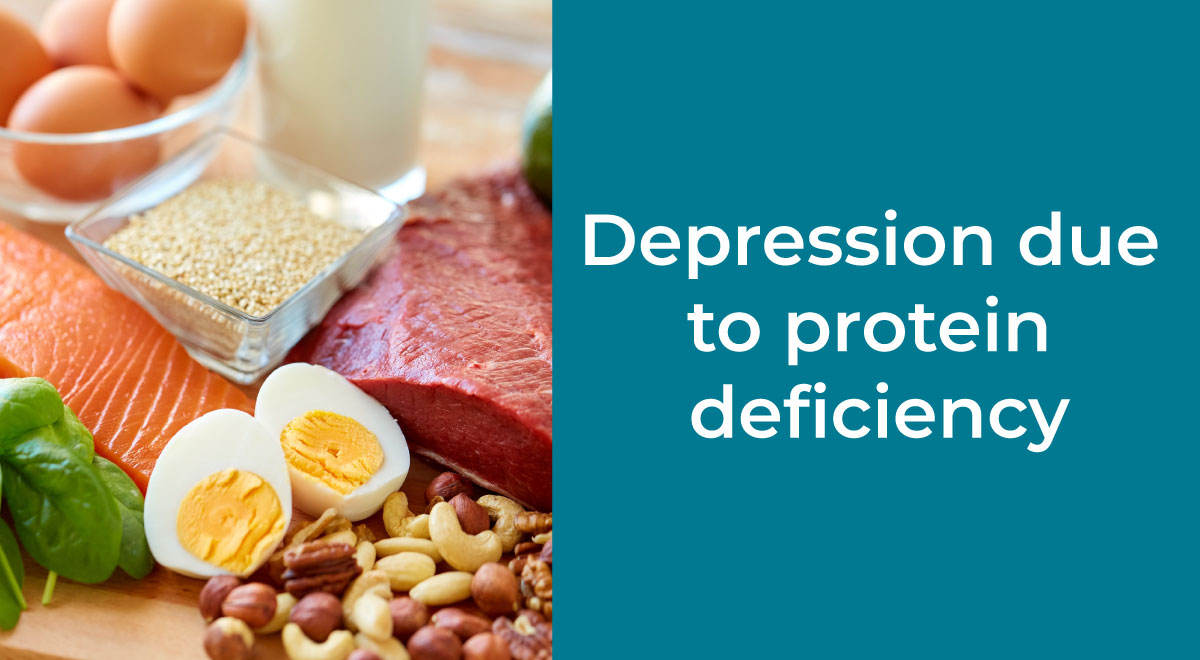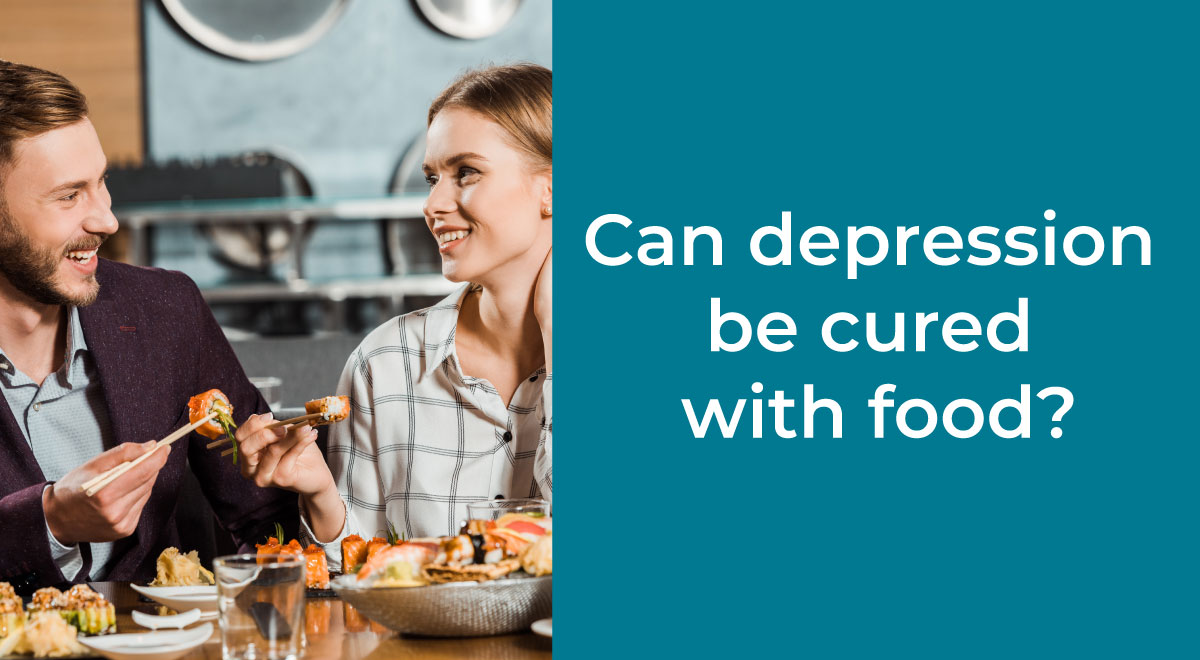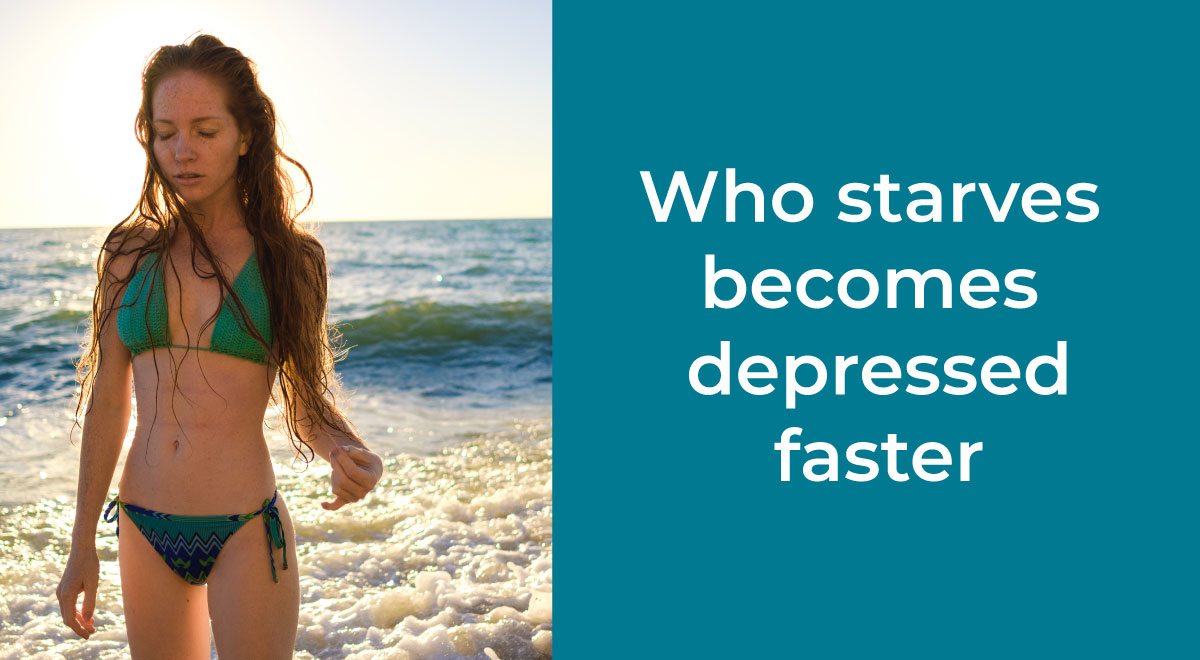
Depression due to protein deficiency: When nutrition makes people mentally ill
Can depression be caused only by protein deficiency? Yes, this is actually possible! Learn now what you should pay attention to in the future.
Every human being needs protein. This is because the essential amino acids it contains are the raw material from which we produce all the messenger substances in our brain. If we don’t eat enough protein at every meal, our brains can’t function properly. We become anxious, unfocused, tired and sooner or later depressed.
Protein deficiency: watch out for these symptoms
Food is also information in the truest sense of the word. Because only when we can produce enough neurotransmitters does the signal traffic in the brain and body run smoothly. Eating the right foods is therefore crucial for processing information of all kinds and also reduces inflammation and oxidative stress. A protein deficiency, on the other hand, damages both body and mind. You should therefore be particularly alert to the following symptoms:

How much protein does a healthy psyche need?
How much protein do we need and what are the best sources for it? Unlike carbohydrates or fat, our body cannot store protein. If you eat too little of it, the body has to break down its own protein in muscles and tissue. The daily requirement for an adult is 0.36 grams per pound of body weight per day. This amounts to 57.6 grams per day for a 160-pound person or 72 grams per day for a 200-pound person. However, adolescents going through puberty, pregnant women, nursing mothers, and people who exercise regularly need significantly more.
Ideal sources of protein include meat, chicken or fish. Vegans or vegetarians can meet their protein needs with beans, nuts, tofu, chickpeas, quinoa or lentils, for example. However, vegetable proteins contain little leucine. This amino acid is responsible for maintaining and building muscle and plays an important role, especially as we age. Older vegans or vegetarians should therefore take leucine with the help of a dietary supplement.
Cure depression with food, is it possible?
We all know that food can also harm us and that too much junk food, for example, is bad for us. But how many of us know that foods containing the optimal amount of protein and other nutrients can make us healthy both physically and mentally?
What is certain is that tryptophan, tyrosine, histidine and arginine, the amino acids found in protein, are the building materials from which our bodies make neurotransmitters and neuromodulators. Tryptophan, for example, helps create our feel-good neurotransmitter serotonin. Research shows that deficiencies in tryptophan and other amino acids can negatively affect brain function and promote the development of depression and anxiety disorders. Conversely, this means that depression causally triggered by a protein deficiency can be overcome with proper nutrition alone.
So, strictly speaking, you are not eating proteins, but the basic building blocks of a healthy psyche. But the right foods can do even more: in addition to depression, they can also prevent diabetes, arthritis, heart disease, autoimmune diseases, headaches, fatigue, insomnia and even dementia. One more reason to ensure a balanced diet with good sources of protein from now on.
However, there is one important caveat: Depression can only be successfully overcome if all the triggers that led to this emotional low are equally taken into account. Who in addition to a protein-poor nutrition e.g. already longer suffers from an anxiety disorder, may strive also for a reasonable anxiety therapy apart from a protein-rich nutrition. Who would like a tip in this regard, for which we have linked the currently probably most successful self-therapy against anxiety disorders HERE.
Protein deficiency can lead to serotonin deficiency
It is well known that persistent stress can lead to depression and other health risks. But the connections are still not adequately explained as to why some people react to stress with depression and others are spared it and even develop creative potential through stress. Similarly, according to the latest research, it has not been proven that depressives have a problem with their messenger substance levels in the brain. This primarily involves serotonin, which is known as the happiness hormone.
But now there is a new suspicion. A protein called “p11” is thought to play a role in the development of depression. A team of researchers in New York found that depressed individuals have low levels of the p11 protein in the brain. The same deficits were found in autopsies of suicide victims and in laboratory experiments with mice. So-called “knockout” mice, in which the p11 protein was switched off, showed clearly depressive behavior. If, on the other hand, the production of the p11 protein was increased in other mice, the mice displayed lively behavior.
But how is this protein related to serotonin levels, which have received so much attention in the treatment of depression? An international group of brain researchers found that it is precisely this protein that is particularly important for the release of the mood-regulating serotonin in the brain. This is because p11 activates a serotonin receptor in the brain.
Whether a protein pill will come onto the market in the future that will have a real healing effect on depression and be free of side effects remains questionable. This is because the antidepressants administered to date, which are supposed to restore the availability of neurotransmitters in the brain such as serotonin or norepinephrine, are ineffective in many patients. In addition, they can lead to a number of side effects, some of them serious. As convenient as the drug treatment of depression may be for those affected, this form of therapy often leads to psychological tablet dependence. Anyone who still considers that this only combats the symptoms, while a real cure usually fails to materialize, should perhaps look around for other ways to get a grip on their depression. A protein-rich diet as well as the SUCCESSFUL TREATMENT of possibly existing anxiety disorders are only two possible ways, which have already helped many of our patients.

Depression through diet
Diets can actually trigger depression! Even if no one wants to hear that. Because the slim figure has become the golden calf of our society. Being slim is often equated with beauty and success in all areas of life.
In magazines, on the Internet and on social media, one diet recommendation follows the next. Here are just a few examples:
For very experimental weight loss specialists there is still the Paleo diet: Eat like in the Stone Age! Even if this diet is not properly implemented according to its name, because who runs after chickens or cattle with a hand axe, it is perhaps the healthiest of all diets, because it does completely without industrially produced food.
Nevertheless, all diets have one thing in common: they can lead to constantly increasing weight gain. This is because our bodies have been used to storing carbohydrates in fat cells for periods of hunger since time immemorial. When we stop dieting, the body automatically stores fat for the next hunger period. And this is how the dreaded yo-yo effect occurs.
A far more dangerous consequence is that diets can trigger depression. Sounds strange, but is actually logical.
Researchers at University College in London found out that overweight test persons who lost a lot of body weight did not become happier, but on the contrary reacted with depressive mood. The explanation is that losing weight requires too much willpower. After all, maintaining the lost weight puts too much pressure on those affected. Doing without beloved food and drinks and constantly doing sports on the side is simply too strenuous for those affected in the long run. Exhaustion, loneliness, listlessness and depression are the result.
Brain researcher Professor Achim Peters from the University of Lübeck (Germany) explains this vividly: People who are fat because they eat a lot do so for a specific reason. Eating is a protective mechanism to deal with high or prolonged stress. Eating reduces the stress hormone cortisol, which can be harmful to our brain in the long run. As a result, people who eat a lot are more stress resistant than starved thin people who can’t lower cortisol levels through food.

What really happens to the brain during diets?
The brain plays a separate role in weight loss. In extreme starvation situations, all human organs can lose around 40 percent of their weight. Only the brain reduces its weight by a maximum of 1 percent. Until death by starvation, the brain gets everything it needs. This drastic example shows how much the brain comes to the fore when it comes to nutrient consumption. The brain also plays a dominant role in energy metabolism. Two thirds of the sugar in the blood goes to the brain, only one third is available to the body. Brain research therefore also speaks of the “egoistic” brain.
So if we are overweight – and I’m not talking about obesity, but simply have a few pounds too many on the scales – we should think twice about subjecting ourselves to society’s slimming craze with a diet. Because that can also backfire: We force our brain to its knees and it reacts with depression instead of feelings of happiness over lost pounds in the long run.